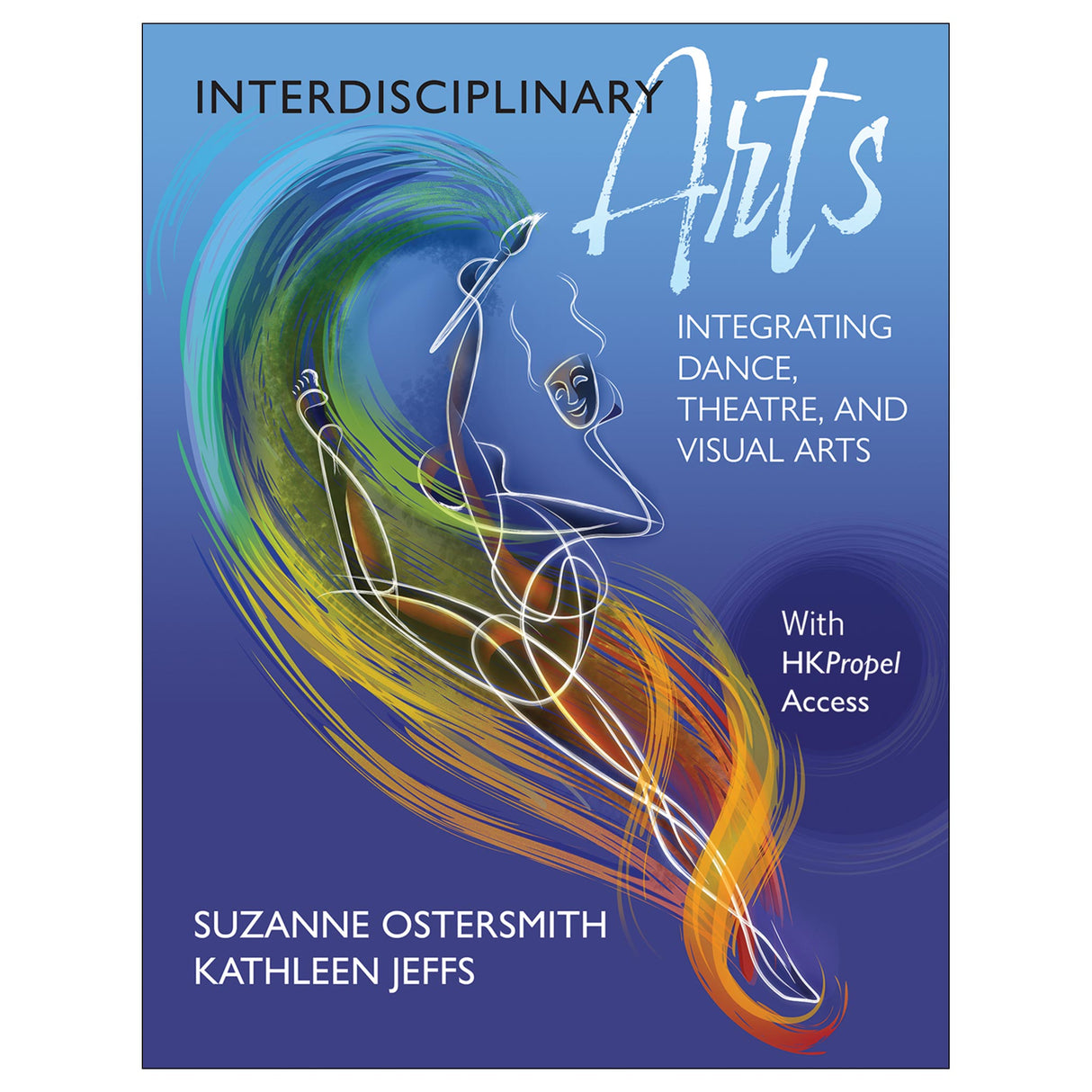Interdisciplinary Arts With HKPropel Access
Integrating Dance, Theatre, and Visual Arts
Author: Suzanne Ostersmith, Kathleen Jeffs
$68.00 USD
This unique text draws from the separate but related disciplines of theatre, dance, and visual arts to help students explore creative and innovative thinking and problem solving. The authors guide the students through the creative process, using exercises, journal prompts, and other tools to aid them in creating original works that employ those arts concepts.
Interdisciplinary Arts uses strategies and terminology from multiple areas of artistic practice to enrich students’ perspectives as artists and as problem solvers and communicators. It also spotlights various artists from history and presents case studies about former students who have created exciting projects, broadening students’ understanding of what might be possible and spurring more creative thinking.
As students delve into the text and its resources and prompts, they will address these types of questions:
- How can I look past the first solution to find the right solution?
- How can I train myself to be creative?
- How can I better articulate how my study of the arts informs my decision-making in other fields?
- How can the arts help me get a job in my chosen field?
- A thumbnail sketch that acts as a rough draft or outline for their project
- A feedback phase, where they learn to assimilate their ideas and others’ ideas about their project
- A presentation phase, where they showcase their work
- A reflection phase, where they consider why they made the work, what it means to them, and what they learned from it
Students engaging with Interdisciplinary Arts will come away with a better sense of cross-disciplinary thinking, their own capacity for creativity, and the connections between their body, mind, and spirit. They will find that their creative energies flow more freely, and they will be able to see how to transfer the skills they learned through this text to a host of endeavors throughout their lives.
Note: A code for accessing HKPropel is included with all new print books.
Audience
Undergraduate text for interdisciplinary arts, dance, theatre, and visual arts courses. High school text for upper-level dance, theatre, and fine arts courses.Interdisciplinary Movement
Bartenieff: Six Developmental Stages
Alexander Technique
Yoga
Conclusion
Chapter 2. Theatre
Getting Started: Connecting to the Text
Preparing a Scene
Body: The Actor’s Instrument
Stage Awareness
Props and Costumes
Collaborative Team
Chapter 3. Dance and Movement
Laban: Still Forms
Centering the Body: 12 Principles of Bartenieff Fundamentals
Preparing for the Work
The Creative Impulse
Intent: Moving With Purpose
Laban’s Effort Factors
Mise en scène
Collaborative Team
Chapter 4. Visual Arts
Visual Arts
Inspiration
Form
Color
Value and Contrast
Rhythm
Shape
Line
Texture
Space
Chapter 5. Dance and Theatre
Integrating Dance and Theatre: Poem Performance Using Laban’s Efforts
Overview of the Process
The Process in Detail
Assimilation of Feedback, Development, and Rehearsal
Conclusion
Chapter 6. Visual Arts and Dance
Integrating Visual Arts With Dance: Wearable or Scenic Art
Overview of the Process
Overview of the Concepts Used in the Project
Conclusion
Chapter 7. Theatre and Visual Arts
Integrating Theatre and Visual Arts: In/Out Masks
Overview of the Process
Overview of the Concepts Used in the Project
Arts-Based Research
Development: Creating Your In/Out Mask
Developing the Monologue
Chapter 8. All Three Art Forms
Making Art Using the Human Intelligences
Multiple Intelligences Synthesis Assignment
Chapter 9. Make Art, but Also, Go See Art!
Theatre Criticism
Visual Art Criticism
Dance and Movement Criticism
Conclusion: Interdisciplinary Arts as a Way of Life
Dance and Movement Exercise: Still Forms
Interdisciplinary Movement Warm-Up Practices: Alexander Technique
All ancillaries are free to adopting instructors through HKPropel.
Instructor guide. Includes a sample course syllabus, chapter overviews, instructor notes, and additional exercises, student examples, and resources.





